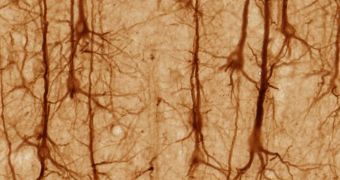A group of investigators based at the University of Houston is currently conducting a new study on how memories form. Instead of examining humans, the team is focusing its efforts of the regular fruit fly, Drosophila melanogaster. The work could eventually lead to new cures for dementias.
What the new study accomplished was taking another step forward in understanding the underlying neural mechanisms at play in Pavlovian conditioning, a technique first studied by renowned Russian scientist Ivan Pavlov on dogs. The work could allow scientists to develop ways of improving memories in humans, potentially fighting off conditions such as Alzheimer's disease.
Details of the research appear in the November 27 issue of the Cell Press journal Current Biology. The science team was led by UH associate professor of biology and biochemistry Gregg Roman, and postdoctoral research associate Shixing Zhang.
The duo focused its efforts on olfactory learning, which they say is one of the most basic forms of classical, or Pavlovian, conditioning. In order to do this, they analyzed the brains of multiple fruit flies, until they eventually discovered a particular type of nerve cells that appear to underlie this behavior.
“Memory is essential to our daily function and is also central to our sense of self. To a large degree, we are the sum of our experiences. When memories can no longer be retrieved or we have difficulty in forming new memories, the effects are frequently tragic,” Roman says.
He adds that the research was conducted so that scientists could get new insights into how memories form, both in these insects and in humans. “We found that these particular nerve cells – the gamma lobe neurons of the mushroom bodies in the insect brain – are activated by odors,” Roman explains.
The team was able to detect signs of a so-called memory trace in the brains of fruit flies, after the tiny insects were taught to associate a certain smell with a mild electric shock. The changes were observed when the “ test subjects” were exposed to the smell, but not to the shocks.
“Interestingly, we found that training caused the gamma lobe neurons to be more weakly activated by odors that were not paired with an electric shock, while the odors paired with electric shock maintained a strong activation of these neurons,” Roman goes on to say.
A molecule called the heterotrimeric G(o) protein was also found to play a role in the formation of memory traces. When researchers removed it from the brains of fruit flies, the insects exhibited very poor memory responses to the specific odors used in the test.
Scientists will now attempt to discover neurons similar to gamma lobe nerve cells, and proteins similar to the heterotrimeric G(o) molecule, in humans.

 14 DAY TRIAL //
14 DAY TRIAL //